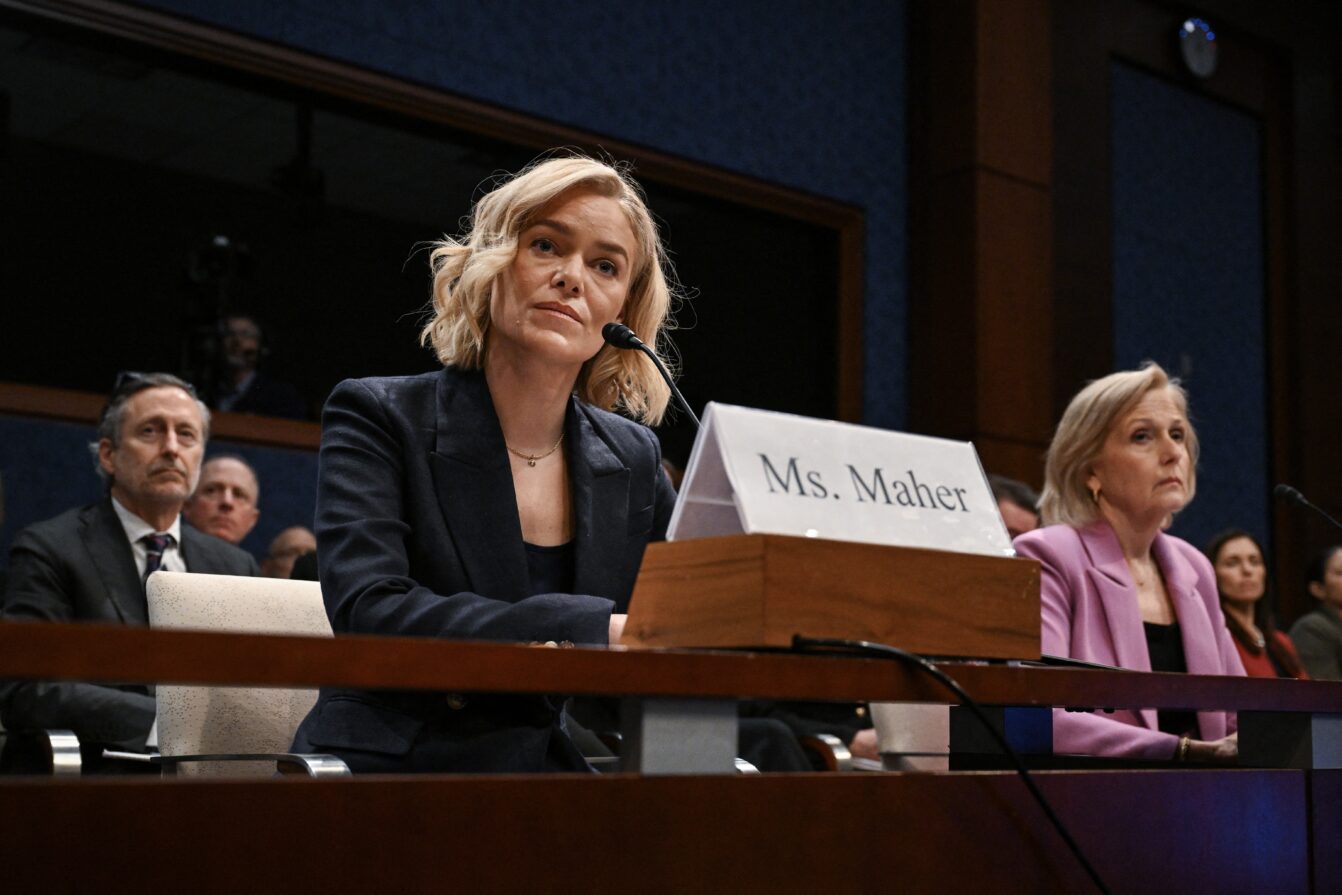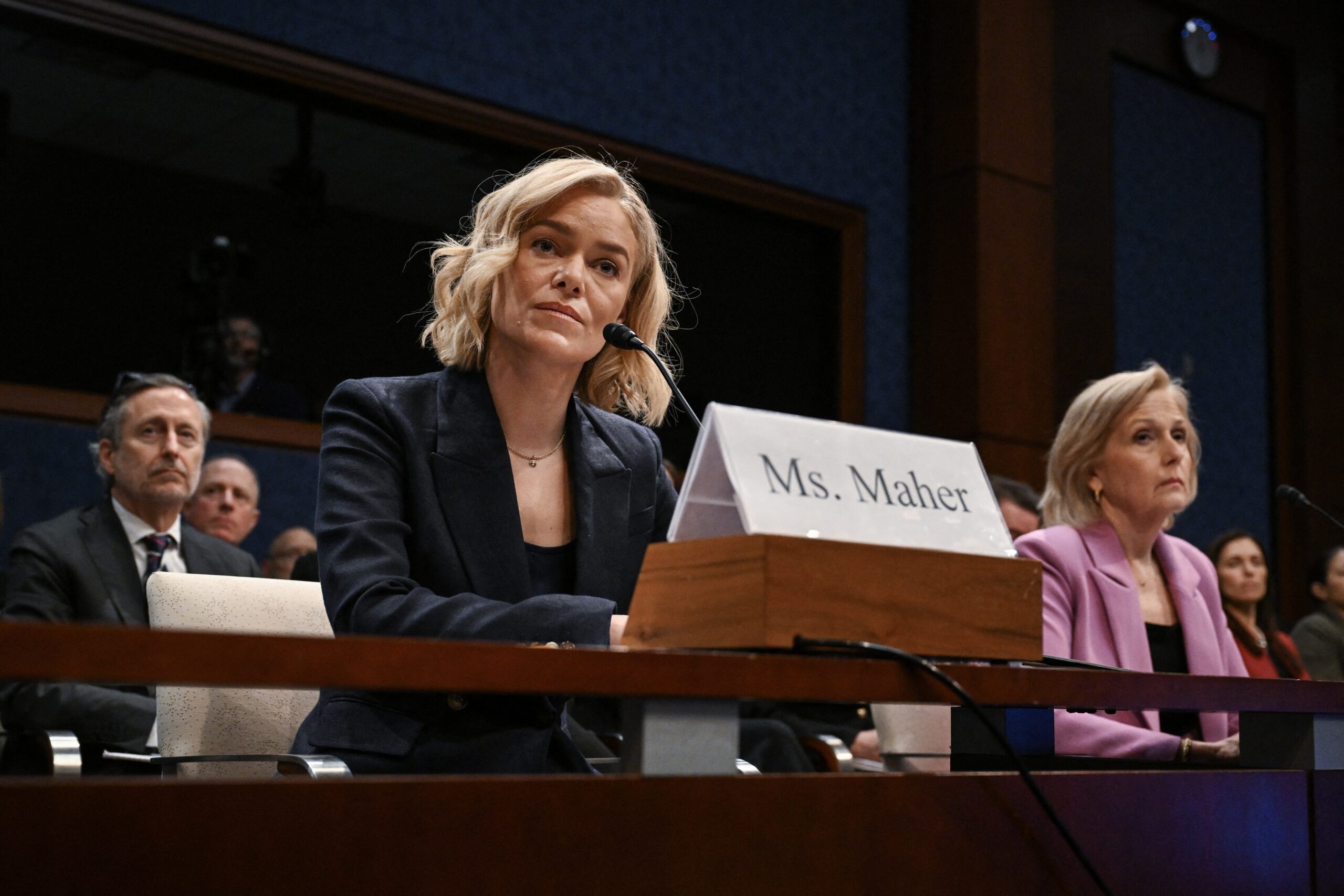First Amendment under Pressure From the Trump Administration

by Madelyn Awaad ‘27

Head of NPR testifies to congress amidst threats to pull federal funding.
Free speech is still legal, but it doesn’t always feel safe to speak freely. Under President Donald Trump’s second presidency, conservative voices have said that they felt more heard. But others, including teachers, college students, scientists, and activists, have felt pressured to stay quiet or risk trouble. Trump signed an executive order to “protect free speech,” but some have interpreted it as actually an attack on the free speech of those that he perceives as his enemies. The First Amendment guarantees free speech, as well as a free press; however, Trump has taken a number of actions that are threatening the media landscape. As Katherine Jacobsen from the Committee to Protect Journalists stated in an interview with NPR, “Press freedom is no longer a given in the United States.”
Trump Sues News Show
ABC News quietly settled a defamation lawsuit with President-elect Donald Trump for $15 million on December 16, 2024. The case began after George Stephanopoulos, during the March 10 episode of This Week, incorrectly said Trump had been “found liable for rape” in the E. Jean Carroll civil trial. In fact, the 2023 jury found Trump liable for sexual abuse and battery, not rape. Trump sued on March 17, 2024, claiming actual malice, and in July a federal judge allowed the case to move forward. That opened the door to a discovery process including internal ABC emails and scheduled depositions of both Trump and Stephanopoulos. Rather than face further risk and publicity, ABC agreed to settle. The money will go to Trump’s presidential foundation and museum. The case is seen as a major win for Trump.
AP Reporter Kicked Out
In February, the Associated Press (AP) was blocked from covering White House events after refusing to follow President Trump’s order to rename the Gulf of Mexico as the Gulf of America. Other reporters were also affected. A judge ruled in March that the government cannot block journalists for their viewpoints and restored the AP’s access. The judge’s ruling emphasized that the First Amendment protects reporters from government retaliation.
Pressure on Corporations
60 Minutes on CBS is a well-known news show that has been around for more than 50 years. Bill Owens, the show’s executive producer, quit in March 2025 after new rules were added that limited what he and his team could report. Some people think this was because the parent company, Paramount Global, wanted to stay on the good side of the Trump administration as it worked on a merger with Skydance Media. Owens felt like the new supervision over stories, especially those involving the government, was too much. As a result, his resignation showed how tough it can be for journalists to stay independent when corporate interests get in the way.
Cutting NPR and PBS Funding
On May 1, President Trump signed Executive Order 14290, which aimed to cut all federal funding for NPR and PBS. He claimed that both stations were too biased in their news reporting and no longer served the public fairly. The order told the Corporation for Public Broadcasting to stop funding NPR and PBS, even though the CPB is an independent nonprofit, protected by law from political control. In response, CPB filed a lawsuit, arguing that Trump’s actions overstepped his authority. Trump also tried to remove three members from the CPB board, which sparked even more controversy. Critics are concerned that this move could hurt local journalism and make public media more vulnerable to political influence.